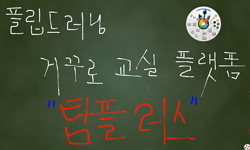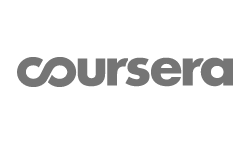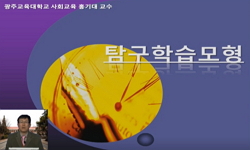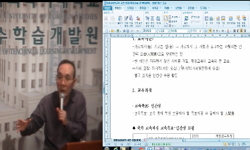The purpose of this study was to understand learners' reactions toward team learning activities in college education. Students' evaluations on team learning activities were collected from four universities in Seoul, Korea in December, 2009. The items ...
http://chineseinput.net/에서 pinyin(병음)방식으로 중국어를 변환할 수 있습니다.
변환된 중국어를 복사하여 사용하시면 됩니다.
- 中文 을 입력하시려면 zhongwen을 입력하시고 space를누르시면됩니다.
- 北京 을 입력하시려면 beijing을 입력하시고 space를 누르시면 됩니다.

대학에서의 팀 학습 활동에 대한 학습자의 평가 = Learners' Evaluation on Team Learning Activities in College Education
한글로보기부가정보
다국어 초록 (Multilingual Abstract)
The purpose of this study was to understand learners' reactions toward team learning activities in college education. Students' evaluations on team learning activities were collected from four universities in Seoul, Korea in December, 2009. The items included in the student evaluation were evaluations on ① overall satisfaction toward the class, ② instructional methods, ③ instructor's enthusiasm, ④ instructional materials, ⑤ task load, ⑥ test and assignments, ⑦ instructor's attention to learners, ⑧ the level of motivation, and ⑨ the level of knowledge acquisition. The results demonstrated that the students' evaluations on team learning activities showed a significant difference in years of schooling when it came to overall satisfaction toward class and the level of motivation. The students' evaluation also revealed that there was a significant difference in instructional materials and the level of motivation according to the class contents. By the class size, instructor's enthusiasm, instructional materials, and the level of motivation showed a significant difference. Findings were discussed in terms of pedagogical implications on team learning activities in college education.
국문 초록 (Abstract)
이 연구는 최근 증가하고 있는 대학의 팀 학습 활동에 대한 학습자의 반응을 알아보는 것을 목적으로 하였다. 이를 위하여 팀 학습 활동에 관련된 이론과 선행연구를 검토하였고, 2009년 12월 ...
이 연구는 최근 증가하고 있는 대학의 팀 학습 활동에 대한 학습자의 반응을 알아보는 것을 목적으로 하였다. 이를 위하여 팀 학습 활동에 관련된 이론과 선행연구를 검토하였고, 2009년 12월 서울 소재 4개 대학의 213명의 재학생으로부터 설문에 대한 응답을 얻었다. 팀 학습 활동에 대한 학습자의 반응은 ① 수업에 대한 전반적인 호감도, ② 수업의 체계성, ③ 교수자의 열의, ④ 수업 자료의 적절성, ⑤ 학습량의 증가 여부, ⑥ 시험과 과제물의 적절성, ⑦ 교수자의 학생에 대한 관심, ⑧ 학습의욕 증대 여부, ⑨ 지식습득 증대 여부가 학년, 수업내용, 수업규모에 따라 차이가 있는지를 통하여 평가하였다. 연구 결과, 학년에 따라 팀 학습 활동을 하는 수업에 대한 전반적인 호감도와 학습의욕 증대 여부에 차이를 보였고, 수업 내용에 따라 수업의 체계성과 학습의욕 증대 여부에 차이가 나타났다. 수업의 규모에 따라 수업에 대한 교수자의 열의, 시험 및 과제물의 적절성, 그리고 학습의욕 증대 여부에 대한 응답에 차이가 있는 것으로 나타났다. 이 연구는 대학교육에서 팀 학습 활동을 성공적으로 수행하기 위한 방향을 제시하였다는 점에서 의의가 있다.
참고문헌 (Reference)
1 민혜리, "학생들이 생각하는 좋은 강의에 대한 연구" 3 : 11-14, 2004
2 Michaelssen, L. K., "팀 기반 학습" 학지사 2009
3 이동원, "집단경쟁과 집단무경쟁 협동학습이 학업성취와 학습동기에 미치는 영향" 계명대학교 1992
4 이영민, "웹 기반 팀 학습환경에서 사회적 친밀감과 학습자의 참여도 및 과제수행 간 상관분석" 한국정보교육학회 10 (10): 307-314, 2006
5 Dyer, W. G., "세계 초일류 조직을 위한 팀 빌딩" 삼성북스 2005
6 최윤미, "대학에서의 ‘좋은 팀웍’의 특성 및 유형에 대한 대학원생의 인식 연구" 교육연구소 10 (10): 257-283, 2009
7 Bligh, D. A., "What's the use of lectures. Harmondsworth" Penguin 1972
8 Lancaster, K., "Using the team-learning model in a managerial accounting class:An experiment in cooperative learning" 16 (16): 549-567, 2001
9 Miglietti, C., "Using cooperative small groups in introductory accounting classes:A practical approach" 78 (78): 111-115, 2002
10 Kogut, L., "Using collaborative learning to enhance performance in general chemistry" 74 (74): 720-722, 1997
1 민혜리, "학생들이 생각하는 좋은 강의에 대한 연구" 3 : 11-14, 2004
2 Michaelssen, L. K., "팀 기반 학습" 학지사 2009
3 이동원, "집단경쟁과 집단무경쟁 협동학습이 학업성취와 학습동기에 미치는 영향" 계명대학교 1992
4 이영민, "웹 기반 팀 학습환경에서 사회적 친밀감과 학습자의 참여도 및 과제수행 간 상관분석" 한국정보교육학회 10 (10): 307-314, 2006
5 Dyer, W. G., "세계 초일류 조직을 위한 팀 빌딩" 삼성북스 2005
6 최윤미, "대학에서의 ‘좋은 팀웍’의 특성 및 유형에 대한 대학원생의 인식 연구" 교육연구소 10 (10): 257-283, 2009
7 Bligh, D. A., "What's the use of lectures. Harmondsworth" Penguin 1972
8 Lancaster, K., "Using the team-learning model in a managerial accounting class:An experiment in cooperative learning" 16 (16): 549-567, 2001
9 Miglietti, C., "Using cooperative small groups in introductory accounting classes:A practical approach" 78 (78): 111-115, 2002
10 Kogut, L., "Using collaborative learning to enhance performance in general chemistry" 74 (74): 720-722, 1997
11 Salas, E., "Toward an understanding of team performance and training, in Teams" Ablex 1992
12 Shevlin, M., "The validity of student evaluations of teaching in higher education:love me,love my lectures?" 25 (25): 397-405, 2000
13 Miller, D. L., "The stages of group development:A retrospective study of dynamic team processes" 20 (20): 121-134, 2003
14 Bolton, M. K., "The role of coaching in student teams: A “Just-in-Time” approach to learning" 23 (23): 233-250, 1999
15 Chambers, B., "The relationship between student team learning outcomes and achievement,causal attributions,and affect" 83 (83): 140-146, 1991
16 Topping, K., "The peer tutoring handbook:Promoting cooperative learning" Croom Helm 1998
17 Mathieu, J. E., "The influence of shared mental models on team process and performance" 85 (85): 273-283, 2000
18 Prater, E., "The impact of coordination methods on the enhancement of business writing" 1 (1): 57-71, 2003
19 Wales, C. E., "The guided design approach" Educational Technology Publications 1978
20 Hooper, S., "The effects of group composition on achievement,interaction,and learning efficiency during computer-based cooperative instruction" 39 (39): 27-40, 1991
21 Jehn, K. A., "The dynamic nature of conflict:A longitudinal study of intergroup conflict and group performance" 44 (44): 238-251, 2001
22 Neer, M. R., "The development of an instrument to measure classroom comprehension" 36 : 154-166, 1987
23 Clark, M. C., "Team-based learning in an undergraduate nursing course" 47 (47): 111-117, 2008
24 McInerney, M. J., "Team-based learning enhances long-term retention and critical thinking in an undergraduate microbial physiology course" 4 (4): 3-12, 2003
25 Searle, N. S., "Team learning in medical education:Initial experiences at ten institutions" 78 (78): 55-58, 2003
26 Hernandez, S. A., "Team learning in a marketing principles course: Cooperative structures that facilitate active learning and higher level thinking" 24 (24): 73-85, 2002
27 Maier, M., "Teaching tools: Cooperative learning in economics" 32 (32): 358-361, 1994
28 McKeachie, W. J., "Teaching thinking. NCRIPTAL Update, 1"
29 Treisman, P. U., "Study of the mathematics performance of Black students at the University of California, Berkeley" 47 : 1641-, 1985
30 Deeter-Schmeltz, D., "Student team performance:A method for classroom assessment" 20 (20): 85-93, 1998
31 Feingold, C. E., "Student perceptions of team learning in nursing education" 47 (47): 214-222, 2008
32 Koppenhaver, G. D., "Structuring the classroom for performance:Cooperative learning with instructor-assigned teams" 1 (1): 1-21, 2003
33 Janz, B. D., "Self-directed team in IS:Correlations for improved systems development work outcomes" 35 (35): 171-192, 1999
34 Slavin, R. E., "Research in cooperative learning:Consensus and controversy" 47 (47): 52-55, 1990
35 Stout, R. J., "Planning, shared mental models, and coordinated performance: An empirical link is established" 41 (41): 61-71, 1999
36 Langan-Fox, J., "Mental model,team mental model,and performance:Process,development,and future directions" 14 (14): 331-352, 2004
37 Parmelee, D. X., "Medical students' attitudes about team-based learning in a pre-clinical curriculum" 14 (14): 1-6, 2009
38 Mikkelsen, A., "Measuring organizational learning climate:A cross-national replication and instrument validation study among public sector employees" 19 (19): 121-134, 2000
39 Robbins, T. L., "Meaningfulness and community in the classroom:The role of teamwork in business education" 69 (69): 312-316, 1994
40 Jaques, D., "Learning in groups" Kogan Page Publishing 2000
41 Johnson, D. W., "Joining together:Group theory and group skills" Prentice-Hall 1991
42 Astin, A. W., "Involvement: The cornerstone of excellence" 17 : 35-39, 1985
43 Johnson, D. W., "Interdependence and interpersonal attraction among heterogeneous and homogeneous individuals:A theoretical formulation and a meta-analysis of research" 53 (53): 5-54, 1983
44 Smith, D. G., "Instruction and outcomes in an undergraduate setting" 1980
45 Johnson, D. W., "Implementing cooperative learning" 63 (63): 173-180, 1992
46 Siciliano, J., "How to incorporate cooperative learning principles in the classroom: It's more than putting students in teams" 25 (25): 8-20, 2001
47 Levi, D., "Group dynamics for teams" Sage Publications 2007
48 Brooks, C. M., "Free riding in group projects and the effects of timing, frequency, and specificity of criteria in peer assessments" 77 (77): 268-272, 2003
49 Espinosa, J. A., "Explicit versus implicit coordination mechanism and task dependencies: One size does not fit all, in Team cognition" APA 2004
50 Kunkel, J. G., "Effects of student team learning in undergraduate auditing courses" 72 (72): 197-200, 1997
51 Johnson, D. W., "Effects of cooperative,competitive,and individualistic goal structures on achievement:A meta-analysis" 89 (89): 47-62, 1981
52 Cavalier, J .C., "Effects of cooperative learning on performance, attitude, and group behaviors in a technical team environment" 43 (43): 61-71, 1995
53 Tinto, V., "Dropout from higher education:A theoretical synthesis of recent research" 45 : 89-125, 1975
54 Alge, B. J., "Does the medium matter? Knowledge building experiences and opportunities in decision-making teams" 91 (91): 26-37, 2003
55 Hampton, D., "Does cooperative learning mean equal learning?" 72 (72): 5-7, 1996
56 Slavin, R. E., "Cooperative learning:Student teams(2nd ed.)" National Education Association 1987
57 Slavin, R. E., "Cooperative learning: Theory, research and practice" Prentice-Hall 1995
58 Dansereau, D. F., "Cooperative learning: Impact on acquisition of knowledge and skills" 1983
59 Johnson, D. W., "Cooperative learning returns to college:What evidence is there that is works?" 30 (30): 26-35, 1998
60 Millis, B. J., "Cooperative learning or higher education faculty" Phoenix, AX: Oryx. 1998
61 Cooper, J., "Cooperative learning and college teaching:Tips from the trenches" 4 (4): 1-2, 1990
62 Cooper J. S., "Cooperative learning and college instruction: Effective use of student learning teams" California State University Foundation 1990
63 Slavin, R. E., "Cooperative learning" 50 (50): 315-342, 1980
64 Kulik, J. A., "College teaching, in Research on teaching: Concepts, findings and implications" McCutcheon 1979
65 Smith, D. G., "College classroom interactions and critical thinking" 69 : 180-190, 1977
66 Levesque, L. L., "Cognitive divergence and shared mental models in software development project teams" 22 (22): 135-144, 2001
67 Johnson, D. W., "Circles of learning: Cooperation in the classroom (5th ed.)" Interaction Book Company 2002
68 Fink, L. D., "Beyond small groups: Harnessing the extraordinary power of learning teams, in Team-based learning: A transformative use of small groups" Praeger Press 2002
69 Keeler, C., "An assessment of cooperative learning used for basic computer skills instruction in college classroom" 12 (12): 379-393, 1995
70 Kelly, P. A., "A comparison of in-class learner engagement across,problem-based learning,and team learning using the STROBE classroom observation tool" 17 (17): 112-118, 2005
동일학술지(권/호) 다른 논문
-
- 한국교육방법학회
- 김연희
- 2010
- KCI등재
-
외적 보상, 내․외재동기, 과제유형이 문제 해결에 미치는 효과
- 한국교육방법학회
- 한영숙
- 2010
- KCI등재
-
동기적 성향(성취목표 지향성)과 성격 유형(자존감)에 따른 위키 협력학습 참여유형 분석과 교수전략 개발
- 한국교육방법학회
- 이은철
- 2010
- KCI등재
-
- 한국교육방법학회
- 김영아
- 2010
- KCI등재
분석정보
인용정보 인용지수 설명보기
학술지 이력
| 연월일 | 이력구분 | 이력상세 | 등재구분 |
|---|---|---|---|
| 2026 | 평가예정 | 재인증평가 신청대상 (재인증) | |
| 2020-01-01 | 평가 | 등재학술지 유지 (재인증) |  |
| 2017-01-01 | 평가 | 등재학술지 유지 (계속평가) |  |
| 2013-01-01 | 평가 | 등재 1차 FAIL (등재유지) |  |
| 2010-01-01 | 평가 | 등재학술지 유지 (등재유지) |  |
| 2007-01-01 | 평가 | 등재학술지 선정 (등재후보2차) |  |
| 2006-01-01 | 평가 | 등재후보 1차 PASS (등재후보1차) |  |
| 2005-06-17 | 학술지등록 | 한글명 : 교육방법연구외국어명 : The Korean Journal of Educational Methodology Studies |  |
| 2004-01-01 | 평가 | 등재후보학술지 선정 (신규평가) |  |
학술지 인용정보
| 기준연도 | WOS-KCI 통합IF(2년) | KCIF(2년) | KCIF(3년) |
|---|---|---|---|
| 2016 | 1.94 | 1.94 | 2.08 |
| KCIF(4년) | KCIF(5년) | 중심성지수(3년) | 즉시성지수 |
| 2.23 | 2.35 | 2.393 | 0.91 |




 RISS
RISS 스콜라
스콜라






